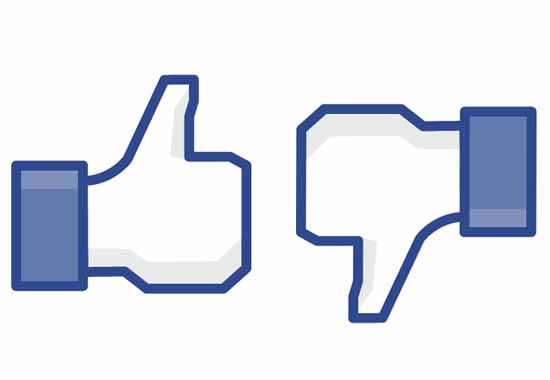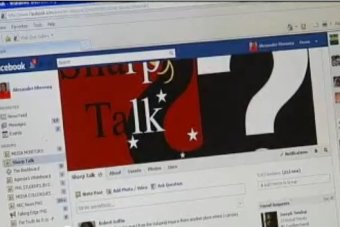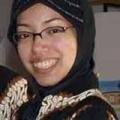
Nasya Bahfen reporting for Radio Australia's Pacific Beat
ANALYSIS: It's been called an historic election for Papua New Guinea, for many reasons - and one of them is the growing role of social media.
Blogs, Facebook and Twitter have been making an impact in the way Papua New Guineans involve themselves in the political process.
Emmanuel Narokobi runs the popular Masalai blog and is one of the administrators of SharpTalk, a Facebook group where users discuss all things PNG and election related.
He says the recent constitutional crisis, which saw the country with two men claiming the title of prime minister, was a big catalyst for online discussion.
"Even lawyers from PNG and Australia couldn't really work out who was right, and that went into all the other appointments," he said.
He says the online conversation was more about solutions than choosing sides in the political stand-off.
Nation-building
"I guess everyone was tired of the politics in a sense and they just wanted to get on with nation building," he said.
"It actually resulted again through SharpTalk people organising and taking part in discussions that were being held by Transparency International and church groups, generally all saying the public and the country wanted a solution to be made by both parties."
Another popular political blog in PNG is The Garamut, run by an anonymous blogger who goes by the name of Tavurvur.
He says the election results have been featuring highly in discussions as well as the problems people have had with voter registration and details.
"One of the key issues that people are concerned about, and are using Facebook and Twitter and even the comments on my blog, to vent their frustration...is the issue to do with the common roll, and how many of our voters, particularly those who have access to technology and social media, haven't found the names of themselves or their families on the common roll," he said. "If somebody has access to a medium by which they can pronounce that fact to a wider audience, and as a result we've seen a lot of comments.
"If somebody has access to a medium by which they can pronounce that fact to a wider audience, and as a result we've seen a lot of comments.
Narokobi says the use of social media marks a change in the way people in PNG take part in political discourse.
"It's been huge," he said.
Big jump
"SharpTalk [is] a fairly active Facebook group among PNG users. We had about 3-4000 users...then after the constitutional crisis the numbers jumped up to about 6000 members.
"We could directly see the number of people that actively accessed information about what was going on and participate in discussions.
"It's been a great avenue for people to get information - the background story on issues, and things like that. So people aren't as isolated as before."
Tavurvur says while PNG media has always been quite free, social media has given the reactions and discussion of voters more of an immediacy.
"We're seeing that happen as we speak right now...in the past, when we had previous elections, we knew there were problems with the common roll," he said.
"Because of that access to social media and technology, it seems to have become emphasised.
"The amount of complaints or issues being raised by people, I think to some degree have always been there, but with the provision of social media, we now see those issues gaining prominence.
Media fall behind
"Traditional media have always reported stories about the election, [but] their only problem is that they're so slow. They're always a good 12 hours or 24 hours behind what's happening.
The engagement hasn't stuck to Facebook - Emmanuel Narokobi says it's also spurred political action off-line.
"One of the best examples was Parliament had advised the public they might possibly delay the elections and this was before Easter weekend," he said.
"And so over the whole Easter break on a weekend people frantically organising on Facebook a protest march on Tuesday after Easter Monday.
"So seeing people put the effort into something like that on a public holiday was interesting."
Narokobi says the growing power of social media demonstrated in this election shows a generational shift in involvement in PNG politics.
"The majority of users on Facebook in PNG are 25 and under, or around 35, and under so it's definitely a younger population that's getting involved with social media."
O'Neill responds
"I mean having said that too it also helps that we have someone like [caretaker Prime Minister Peter] O'Neill around that age group as well that's responding to it. I think someone older would have probably just dismissed everything and continued doing what he wanted to do."
Tarvuvur says the prevalence of smart-phones means he doesn't see any major differences in access and discussions on social media between rural and urban voters.
"From the last figures I checked in terms of Facebook users in Papua New Guinea in terms of the overall population we have a penetration rate of about 1.8 per cent," he said.
"But in regards to Facebook penetration rates in terms of the internet population (those who have access to the internet) we're looking at about eighty per cent of that population."
This work is licensed under a Creative Commons Attribution-NonCommercial 3.0 New Zealand Licence.
PNG POLL RESULT SOON
The result of Papua New Guinea's three-week general election should be known soon.
Although the voting period was extended by more than a week, counting is underway in 22 provinces.
Results have been declared in 25 of the 111 seats.
Caretaker Prime Minister Peter O'Neill's PNC Party is in the lead with seven members-elect.
Liam Fox reports for the ABC




